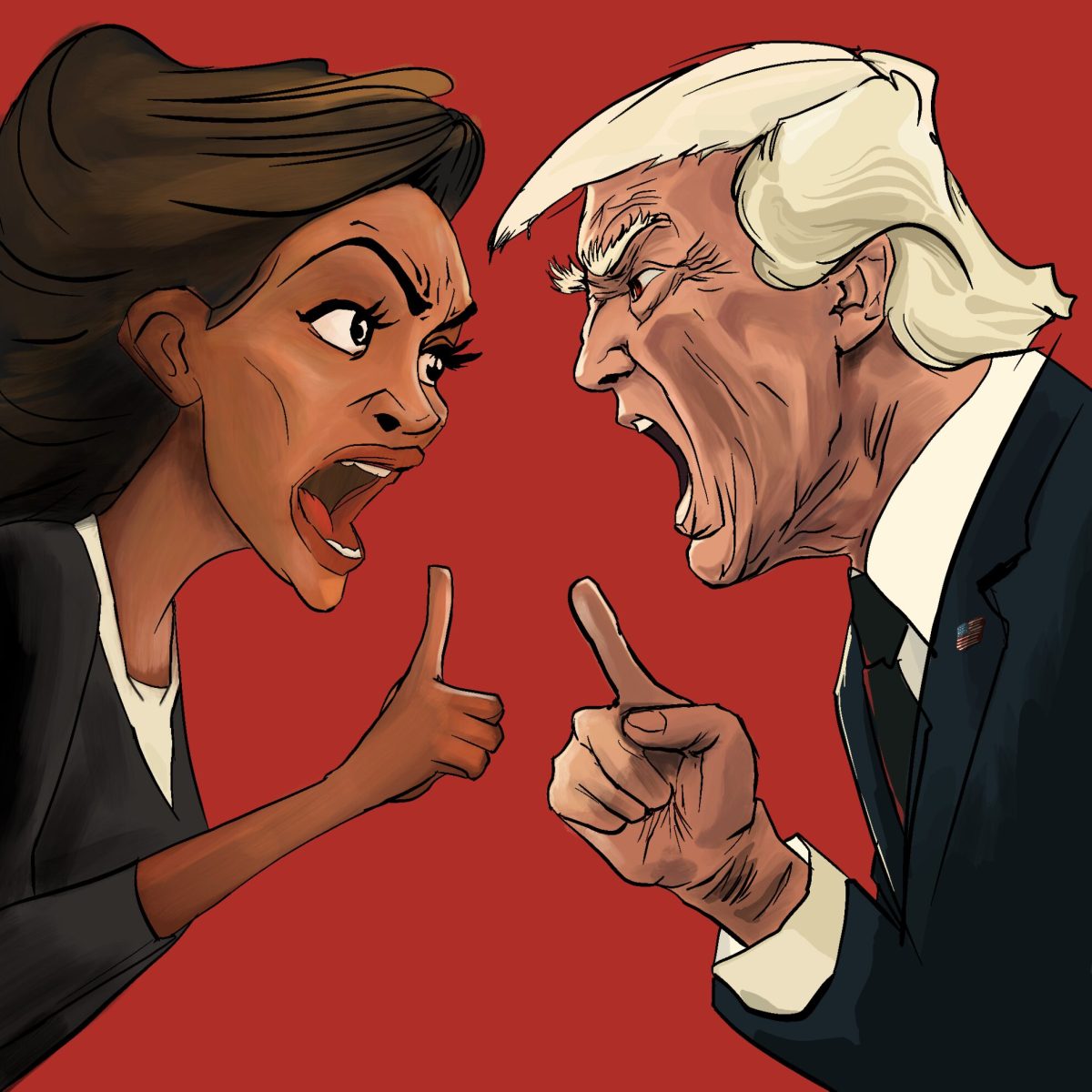Presidential
The 2024 election has seen an interestingly formatted presidential debate: for the current election cycle, both presidential candidates have agreed tentatively to debate only once by October of the election year, doing so outside the jurisdiction of the Commission on Presidential Debates in a precedent-breaking decision. Trump and Harris met on Sep. 10th for this debate with crucial political issues such as the economy, immigration, and abortion on the docket to be discussed. Both sides reiterated points from their platforms throughout the debate, rarely taking questions head-on and challenging the effectiveness of each other’s administrations.
Trump’s criticisms of the Biden-Harris administration often centered on significant negative world events such as the continuation of the Covid-19 pandemic, widespread inflation in the U.S. and the start of conflicts in Ukraine and Israel. In return, Harris countered by citing the mishandling of the nation before 2021 as the source of the current administration’s shortcomings, labeling Trump’s policies on Covid-19, world politics and the economy as contributing to a subpar situation faced by the Biden administration before the outbreaks of inflation, international conflict, and other woes.
A few statements from both sides of the debate became popular online soon after the debate’s airing, receiving criticism and in some cases appearing as memes on platforms such as TikTok. Trump’s debunked assertion that migrants in Ohio have been “eating the dogs” and consuming pets in immigrant-flooded communities was highly contested by online media. Trump’s claim to have a “concept of a plan” for the American economy was mocked by left-leaning satire creators on TikTok and beyond.
Conversely, Harris was harshly criticized online by right-leaning news outlets for her seemingly inconsistent stances on fracking and the Gaza conflict, seeking to change both subjects when pressed by debate moderators.
Polls saw little change after the broadcast, with Harris’ 3-point lead in New York Times polls remaining just as before the debate.
Vice Presidential
Far from resembling the presidential debate a few weeks prior, the vice-presidential debate held on Oct.1 was defined by discussion and a significant number of agreements by both sides surrounding key issues.
Both Democratic candidate Tim Walz and Republican JD Vance used the stage as an opportunity to expand upon and clarify – in some cases rectifying – the statements made by Harris and Trump surrounding their platforms.
While controversy arose during the debate surrounding the moderators’ muting of mics and fact checking, Walz and Vance collectively outlined a set of issues facing the United States, such as an influx of undocumented immigrants and high inflation, and agreed on aspects of how such issues should be fixed.
Rather than taking aim at one another, both vice presidential candidates focused their criticisms on the presidential candidate of the other party, drawing firm lines between the members of the ticket and echoing each presidential candidate’s concerns surrounding his/her opponent.
A primary issue of the debate was immigration, frequently inciting passionate statements from both sides. Walz and Vance consistently highlighted the high number of border crossings under Joe Biden as a problem for the nation but differed on claimed effectiveness of each administration’s proposed solutions.
While Vance attacked Walz for the influx of border crossings under the Biden administration, Walz countered by claiming Donald Trump was responsible for shutting down legislature that would have secured the border, a stated aim of the former president. This heated portion of debate culminated in Walz targeting Trump’s statements about migrants eating pets in Springfield, Ohio, further scrutinized by debate moderators during a fact check.
Walz faced scrutiny of his own from the broadcaster, as the moderators requested he address his questionably factual stories of being in Hong Kong during the Tiananmen Square Massacre. He responded by recognizing the mistake and claiming to sometimes be a “knucklehead.”
Polls regarding the vice-presidential candidates’ relative popularity saw minor change after the debate, but both candidates notably gained large increases in favorability ratings and were far more likely to be labeled as “reasonable” by the public than the presidential candidates.

























